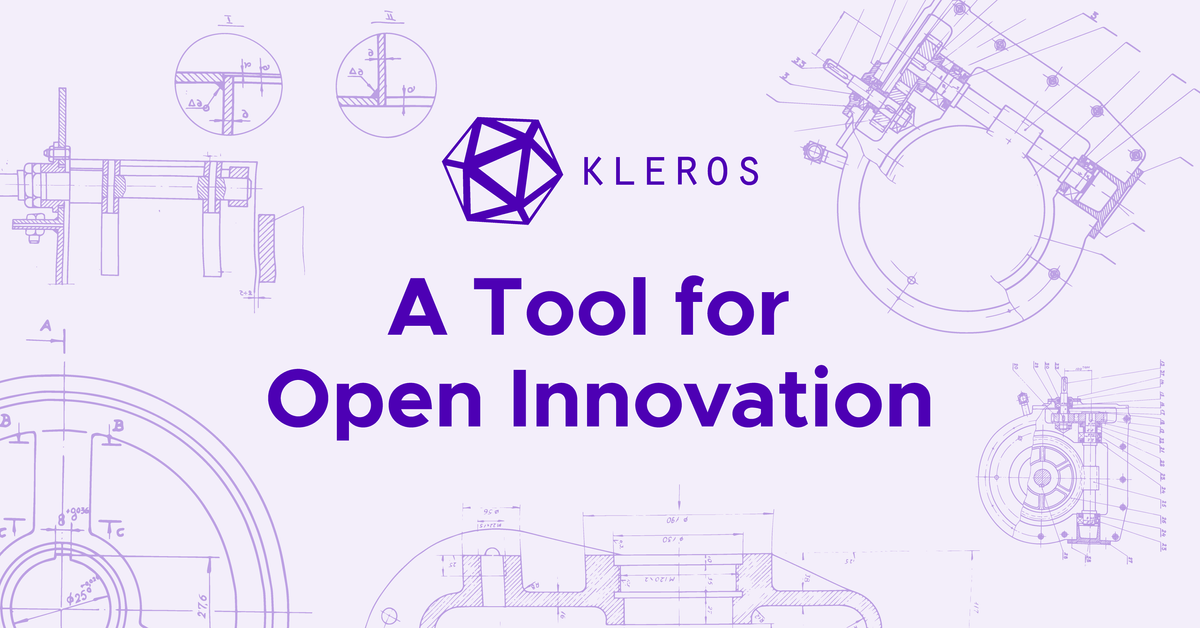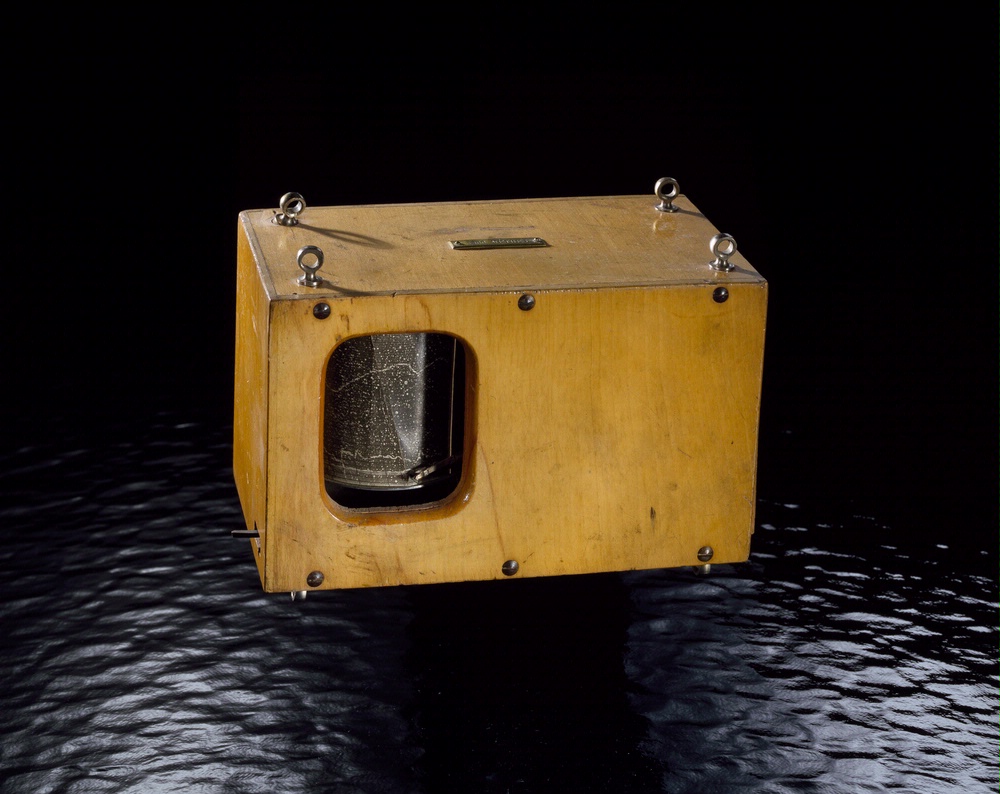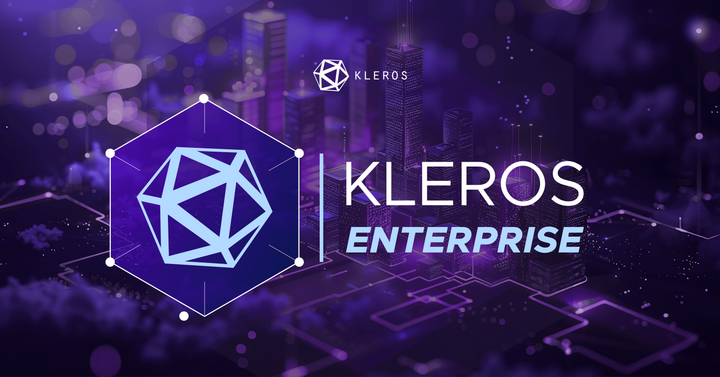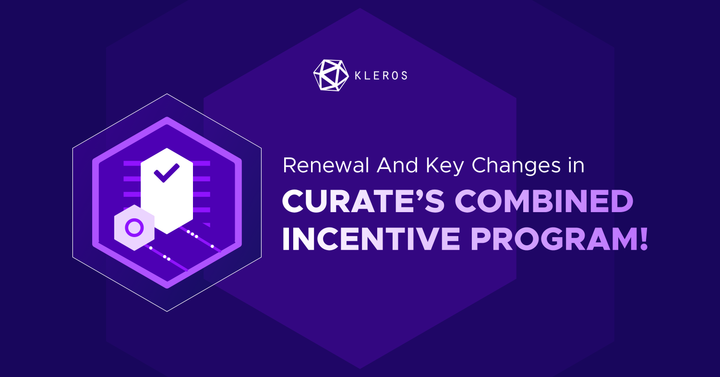Kleros as a Tool for Open Innovation
Kleros is starting a pilot with an insurance company to test a use case of Kleros supporting crowd sourced innovation processes.

We are starting a pilot with an insurance company to test a use case of Kleros supporting crowdsourced innovation processes...
On May 20th, 1927, at 7.52am AM, a small single-engine aircraft took off from Roosevelt Field, Long Island. Thirty three hours later, it landed at Le Bourget Airport, Paris.
That day, a 25 year old Charles Lindbergh made the first non-stop transatlantic flight.
Few people know that Lindbergh made that flight in order to win a $25,000 prize offered by businessman Raymond Orteig for the first nonstop aircraft flight between New York and Paris.
But it took several months for Lindbergh to receive the prize. His performance was only ratified by the Fédération Aéronautique Internationale (FAI) on August 31st, 1927.
The time between the actual flight and the ratification was used to conduct a number of tests to certify that Lindbergh indeed deserved the prize.
First, the plane carried a sealed barograph that recorded the altitudes flown and proved that the flight was uninterrupted. It also reported that 322 litres of gas remained in the sealed tanks. The documents certifying Lindbergh’s landing at Le Bourget were signed by several French officials and the US Ambassador, among others.
Only then the money prize was paid.


Innovation Prizes
We frequently think of R&D as a group of scientists and engineers working in a secret lab.
But the Raymond Orteig prize presented a completely different approach to innovation. It successfully provided the incentives for a large number of inventors and pilots to build the industry of long haul airplane travel.
In more recent times, companies have pulled the wisdom of crowds to develop better products, faster and cheaper. Berkeley professor Henry Chesbrough championed the open innovation approach based on a co-creation effort between companies and customers.
Some companies that have applied open innovation principles include GE, LEGO, Philips, Unilever and Shell, among many others.
Another approach to crowdsourced innovation is the XPRIZE, created by entrepreneur and co-founder of Singularity University co-founder, Peter Diamandis.
The XPRIZE Foundation helps companies and philantropists organize open innovation contests to solve global challenges through entrepreneurship, science and engineering: cheap COVID testing, turning CO2 into products or reskilling workers facing the threat of the digital revolution.
The trend towards more open innovation can benefit from Kleros curation technology to organize a fair, transparent and community driven process.
A Pilot for Open Innovation in Insurance
In order to test the use case of Kleros as enabler for open innovation, we are launching a proof of concept with an insurance company. The goal will be to use Kleros to assist the development of car insurance products.
Kleros will use crowd wisdom for gathering, refining and analyzing data which can be used for predicting insurance premiums. For this purpose, two lists were made in Kleros Curate Dapp and two courts were created in Kleros Court.
Users will be able to submit to both lists and others will be able to challenge submissions in a similar way as other curation applications of Kleros work. Disputes will be resolved in Kleros Court.
Insurance Analysis
In the Insurance Analysis list, users have to submit datasets which comply with a number of conditions to be used in statistical modeling of car insurance products.
After a submission is made, it stays visible for a challenge period during which other users can assess whether it complies with the guidelines for acceptance. Any user that believes that the submissions don't comply with the guidelines, can challenge it by making a deposit.
After the challenge is made, the case will be resolved by jurors in the Data Analysis Court. Qualifications to participate as a juror in this court include comfort in dealing with datasets, particularly in being able to understand the context of the data from the structure of the dataset, and in estimating what percentage of entries are unusable/would need to be cleaned.
While it can be challenging and time consuming to search through government data sources and obscure studies to find relevant data to a situation that one wants to model, once such data is provided it is not too difficult for qualified people to look over it and verify that it satisfies some basic criteria.
As such, the tasks of jurors and challengers are not too difficult, making this application particularly well suited to a curated registry in the style of Kleros Curate.
When choosing parameters, we estimated that jurors who are experienced in dealing with data sets would generally only need 30-60 minutes of time to check them, depending somewhat on how organized the original source of the data is.
Submitters will be rewarded 300 USD in PNK for each of up to four valid submissions that are accepted into the list.
Statistical Modeling
A list of Insurance Data and Modeling was created where users have to submit statistical models. This file has an example of a submission that would be considered satisfactory.
After a submission is made, it stays visible during a challenge period during which other users can assess whether it complies with the guidelines for acceptance. Any user that believes that a submission doesn't comply with the guidelines, can challenge it by making a deposit.
After the challenge is made, the case will be resolved by jurors in the Statistical Modeling Court.
Users participating in this court should be comfortable dealing with datasets. Furthermore, jurors should have a background in statistics equivalent to (at minimum) a university statistics course, and they should be able to analyze the assumptions taken in the creation of statistical models.
Here the work required to serve as a juror is likely to be substantially higher than that required for the list of Insurance Data sets. We estimate that a qualified juror might have to put in 1-2 hours of work to read over the methodology of a model and get her bearings on the model’s underlying assumptions. Then the fees that jurors must be paid, as well as the deposit that a challenger can win, are correspondingly higher.
Submitters will be rewarded 100 USD in PNK for each of up to three valid submissions that are accepted into the list.
Building the Future of Innovation
In his book "Wikinomics: How Mass Collaboration Changes Everything", Don Tapscott ushered a future where innovation would stem from crowds collaborating across the world.
Blockchains and tokenization will enable people to contribute to decentralized product development processes and be rewarded for their hard work and ingenuity. Cryptoassets will represent their share in some collective work and allow them to have a share in some future revenue stream.
Kleros curation technology can play a key role in helping open innovation processes to develop in a fair and transparent way, empowering the community to make sure that all contributors will get what they deserve.
A story which started with Lindbergh's transatlantic flight, now reinvented for the digital age. Kleros can be a key piece of infrastructure for the future of open innovation.

Where Can I Find Out More?
Join the community chat on Telegram.
Visit our website.
Follow us on Twitter.
Join our Slack for developer conversations.
Contribute on Github.
Download our Book



